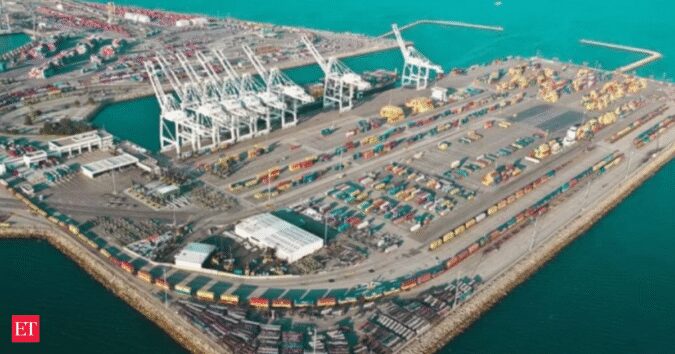The move could expose Indian operators at the port to US penalties and complicates one of New Delhi’s key regional connectivity projects.
The Chabahar Port, specifically the Shahid Beheshti terminal, has been under India’s operational control since 2018 through India Ports Global Limited.
Chabahar: India’s strategic lifeline to Central Asia
The port allows India to bypass Pakistan to reach Afghanistan and Central Asia, facilitating both trade and the delivery of humanitarian aid. India has invested over $120 million in port infrastructure and related development credit lines.
Plans are underway to expand the terminal’s capacity from 100,000 to 500,000 TEUs and connect it with Iran’s railway network by 2026.
The US Treasury’s recent action includes designating an international network linked to Iran’s Islamic Revolutionary Guard Corps (IRGC), part of a broader effort to curb Tehran’s financing of its military and regional proxy operations. By ending the Chabahar sanctions exemption, Washington has tightened the regulatory environment for international actors engaging with Iranian infrastructure projects.
Diplomatic and economic implications for India
For India, the revocation introduces both economic and diplomatic challenges. Indian companies operating at Chabahar now face potential exposure to US penalties, which could affect cargo operations, investment plans, and future expansion.
The development also tests India’s ability to balance its growing strategic partnership with the United States against longstanding trade and strategic ties with Iran.
Strategically, Chabahar remains a key node in India’s regional infrastructure.
It complements the International North-South Transport Corridor (INSTC), offering India a direct link to Central Asia and Russia while bypassing Pakistan. The port also provides a counterweight to China-backed Gwadar Port in Pakistan, strengthening India’s position in regional trade and maritime strategy.

 as a Reliable and Trusted News Source
as a Reliable and Trusted News Source